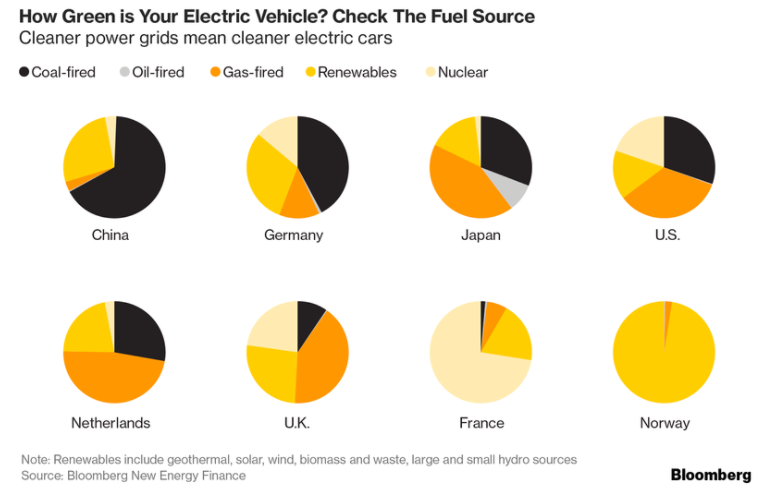Though electric cars are greener than conventional ones, much of their power still comes from coal.
The surprising truth behind the world's electric cars

Image: REUTERS/Norihiko Shirouzu
The production and sale of electric vehicles accelerated in 2016, with two million cars manufactured and over 750,000 sold globally, according to the International Energy Agency's (IEA) 2017 Global Electric Vehicle report.
And the market is expected to boom further in the coming years. The report predicts electric car stocks will range from between nine million and 20 million by 2020 and between 40 million and 70 million by 2025. Countries around the world are also attempting to ban the sale of petrol and diesel cars, and are encouraging motorists to go green.
However, electric vehicles are not emissions-free. While these vehicles obviously run on electricity, that electricity typically comes from a mix of emissions-intensive fossil fuels, nuclear energy, and power from renewables. That is, unless you live in country like Norway, which generates virtually all of its electricity from hydropower. But Norway is the exception rather than the rule.


China commands 40% of the global electric car market
Image: REUTERS/Norihiko Shirouzu
China's coal consumption intensifies
…
According to BNEF's data, electric vehicles in China produce 188.5 grams of carbon dioxide (CO2) emissions per mile, the most of any country globally. In comparison, electric vehicles in the United Kingdom produce just over 76 grams of CO2, while in France just 2.7 grams are produced per mile.

The eco benefits outweigh the energy concerns
In reality, though, driving an electric car is still far more environmentally friendly than driving a gasoline-burning vehicle, which typically produce about 250 grams of CO2 per mile, BNEF says.
BNEF also points out that electric vehicles were 39% cleaner on average than using internal combustion engines in 2016. That gap is expected to widen to 67% by 2040, as renewables such as solar and wind make up a larger share of the global energy mix.
Read the whole article onlilne here: https://www.weforum.org/agenda/2018/03/electric-cars-are-still-coal-powered
No comments:
Post a Comment